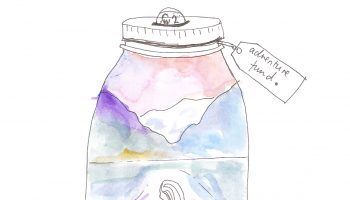Kimberly Uslin, an American friend of mine who I met while on exchange at Washington College, recently confessed in USA Today College that she felt underwhelmed and untransformed by her exchange program in Ireland. It saddened me to read this because studying in the States was the best thing I’ve ever done.
I enjoyed exchange for all the clichés one would hope for from the experience: I made new friends from around the world, I partied hard and often, I had interesting discussions with brilliant professors and I met people with vastly different worldviews (believe it or not some Tea Partiers are actually good people).
An unexpected bonus for me was the development of industry connections and the once in a lifetime opportunity to intern at a prestigious think tank in Washington, D.C.
However, these are not the reasons I would encourage all students to go on exchange. Friends can be made and parties enjoyed through travel, and the financial cost of exchange must be weighed against other types of trips one could take.
What exchange offers is the challenge of making a life for yourself in another part of the world. You must establish a study (and drinking) routine without the support of your family, established friends or a shared dominant culture.
For me this meant losing my personal crutch of using footy and cricket as icebreakers.
If you can overcome this challenge you will gain the confidence to know you can make a go of life anywhere. That is why so many people call it a transformative experience.
By my second semester abroad I found myself so brimming with confidence that I was willing to try things I never even thought of doing at Monash: I took an acting class, I wrote a one act play, I picked up a guitar, I made a short movie.
I don’t know why Kim didn’t have a similar experience in Ireland. I think she enjoys being a student at a small liberal arts college and that Washington College almost completely suits and satisfies her desires and ambitions. If you feel this way about Monash then perhaps there are better ways to spend your money.
It’s also worth noting that Kim, like many more American students than Australian ones, moved interstate to attend college and for these students their freshman year may approximate the exchange experience.
I think I am in the majority of former exchange students when I say it was an immensely valuable experience.
More importantly, for every student who feels unsatisfied by their exchange, there is more than one university graduate who regrets that they never quite got around to studying abroad.
For anyone interested here are my top seven tips for prospective exchange students:
1. Go it alone
Approach your exchange as your own personal voyage. If you find yourself ultimately concerned about travel plans with your mates then you should reconsider your desire to study abroad and do that Eurotrip instead.
2. Think seriously about the country you want to go to
Think first and foremost about what culture you would most like to learn the nuances of.
In my first year at Monash I dreamed of studying in the UK during 2012 so I could go to the London Olympics. I eventually realised that my fascination with America was stronger than my Olympic fever.
Not once have I regretted my decision to study in America.
3. Do as much research as possible
I’m amazed by the amount of stories I’ve heard from people who had fundamental misconceptions about the institutions they went to before they got there.
The worst example was a girl who looked forward to studying at NYU Buffalo because she could spend her weekends in Manhattan. It was not until she arrived that she discovered Manhattan was about nine hours away. At the very least do a Google Maps search!
If your desired country has many available exchange partners, try cutting down the list by eliminating universities that don’t fulfil your top priorities. I eliminated all American colleges that didn’t have an impressive political science program and on-campus living.
4. Make friends early and often
Just like at Monash the easiest time to make new friends is the first couple of weeks of semester, when most students’ workloads are light, routines are malleable and minds are fresh after holidays.
5. Get there early
Bearing in mind the previous point, to lose even a single night early in the semester to jetlag is to miss an opportunity. If at all possible fly to the country well beforehand and try to complete all the essential tourist activities before classes start.
6. Plan your sightseeing
Once you arrive at university your priorities will change from seeing that modern art museum to partying with your new mates. If there is something you have to see make sure you have a firm plan to visit it before or after exchange so you don’t miss out on the benefits of student life.
7. Don’t confine yourself to the ‘international group’
Most universities will conduct pre-semester orientation with a large group of all incoming foreign students.
During orientation I made friends with people from across Europe and South America, a great benefit I didn’t plan on when choosing to study in the US.
The connections you make before classes start will be of tremendous value to you, especially when you feel homesick or just need someone to accompany you to the bar on a Wednesday night.
Be careful however not to complacently resign yourself to this group of friends.
Make a conscious effort to thrust yourself into the world of the host students. That’s the reason you went on exchange in the first place. The internationals will always be there when you need them.


